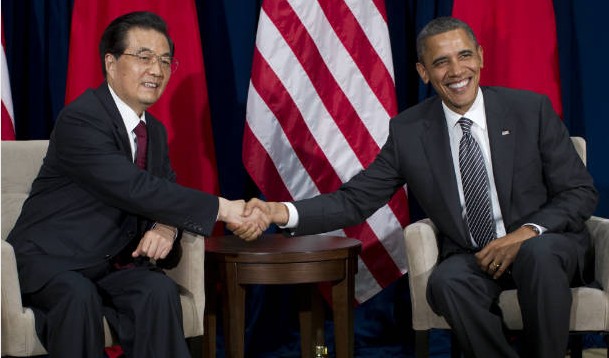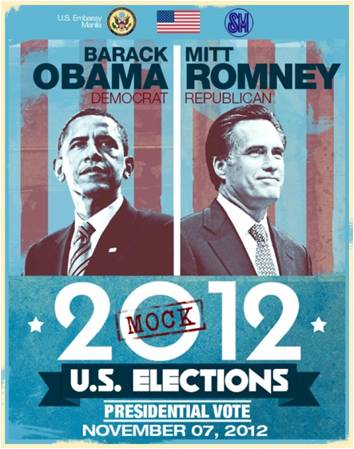
Chinese and American Politics
Fareed Zakaria (host of the CNN show, GPS) made a very interesting comment on his show this past week. As we arrive on heels of the US and Chinese elections (November 6 and November 8, respectively), it’s important to consider some of the vast differences between how these two countries are running their elections, which highlight just how different our cultures are.
Zakaria said, “Consider this: We don’t know who the next occupant of the White House will be, but whoever it is, we have a pretty good estimate of his policies. On the other hand in China, we almost certainly know the identity of the next top leader, Xi Jin Ping; what we have no clue about is where he wants to take China.”
It’s wild to think that a new generation of leaders could take leadership of a country without any idea of what they will say or do. It might seem disorganized, but you can be sure that their plans for what will come next have already been planned behind closed doors. In single-party republics, like China, you have to expect these decisions to be made without public notification… until the day the actual policies are rolled out.
“Until even a few weeks ago, even the date of [the Chinese] election was a secret.” But in the US, we have been publicly preparing for election day for over a year. In China, the political-industrial complex is non-existent. Voting is done in-house, in-party without billions of dollars in funding. The idea that it costs so much to elect the next president is laughable to the Chinese, and perhaps Americans are starting to feel this way too.
Foreign opinions
A French guest on GPS made a comment on a very general French public opinion about supporting Obama: “In 2008, the French would have voted for Obama out of hope. In 2012, they would still vote… for Obama but more out of fear…of a return [to] an America they used to dislike.” An Indian guest was asked about the US election and responded that both candidates, Obama and Romney, would be accepted if chosen. Fareed also noted that a large swath of Asian nations, except Pakistan, would still vote for Obama. For the most part people in Asian nations identify with his background, mostly because Obama spend part of his childhood in Indonesia. The Arab Israeli guest was much more pro-Obama because of an assumption that the election of Romney would return the “insulting, with-us-or-against-us” foreign policy that hardened the world view of the US for much of the early 2000s.
While living abroad I can honestly say that active war policies during the 2000s caused friction among me and my European colleagues, especially the ones from countries which felt roped into joining the US in Iraq. And at one point, my German colleague compared me to President Bush during a heated discussion we had over the academy’s strategic direction in China. I guess I was being too pushy…

Obama v. Romney
American Elections
In my humble opinion, Foreign Policy isn’t the most important part of choosing a president; but if you spend much time with foreigners or live abroad, you’ll start to consider this aspect of the president’s role more seriously over time. No matter what party our next president comes from, I hope it is someone who will not bring us to war with another country, unless we’ve been attacked directly. Our soldiers are our friends and neighbor’s family members and their lives should not be tossed into the abyss so easily… as we’ve done in the recent past.
At the same time, when I look back at politics in the US, it seems to be based purely on taking sides. Me vs You, Us against Them, Good against Evil. For some reason, we are a nation hooked on conflict both internally and externally. If there’s no burning platform, or wall of fire, people don’t seem to respond to it. How can 50% of the country plan to be in mourning if Obama is re-elected, and other 50% plan to leave the country if Romney is elected? How could a candidate that so many people love and admire, cause the fans of the other candidate to be borderline suicidal?… Unfortunately, fear is an important part of American politics and it’s very profitable too, $5.4 billion, in fact.
The last comment I have on the American elections, as an American living in China, is related not to our presidential race but to our congress. The 2011 congress had the lowest approval ratings of all time (gallop.com) 11%! which makes me wonder why so much attention is put on the presidential election. If people cared about politics at all, we’d focus more of our time on state elections. And that’s why I’m making the following pledge:
I will not vote for president if I haven’t voted in local elections in the same year.
I encourage all Americans to do the same.


 Custom Search
Custom Search